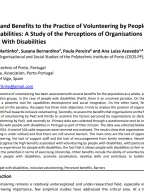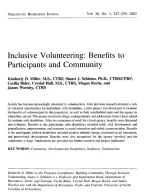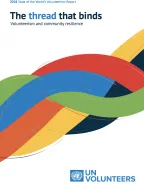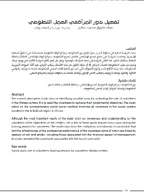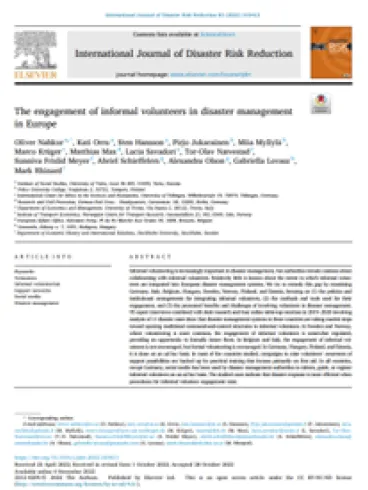
Technical paper
The engagement of informal volunteers in disaster management in Europe
Volunteerism
Humanitarian and Volunteering
Download
Fast read
This study explores the engagement of informal volunteers during disasters that have occurred over the last decade in eight European countries (Belgium, Estonia, Finland, Germany, Hungary, Italy, Norway, Sweden), and the extent to which informal volunteers are integrated into European disaster management systems.
Summary
- The study explores the engagement of informal volunteers during disasters that have occurred in eight European countries, to determine (i) the policies and institutional arrangements for engaging informal volunteers, (ii) which methods and tools are used for engaging informal volunteers, and (iii) the perceived benefits and challenges when engaging informal volunteers in disaster management.
- Research methods included desk research, expert interviews and online exercises in Belgium, Estonia, Finland, Germany, Hungary, Italy, Norway, Sweden between September 2019 and May 2020. A total of 11 disaster cases that have occurred in these counties over the last decades were analyzed.
- The findings revealed that disaster management systems in these countries are taking steps towards opening their traditional structures to the participation of informal volunteers, highlighting that disaster response is more efficient when procedures for informal volunteer engagement exist.
- The research further helped to identify the potential benefits of involving informal volunteers in disaster management, including their role in the dissemination of relevant and accurate information and the provision of social support. H
- Identified challenges and risks of involving volunteers include an often incomplete overview by formal actors of the spontaneous sources of help, the safeguarding of informal volunteers, the incompatible preparedness profiles and training of informal volunteers, the unclear status of informal volunteers, the uncertain role of digital volunteers in disaster management, the provision of inaccurate information, a general lack of coordination, and a lack of clarity and clear authority amongst officials and volunteers.













